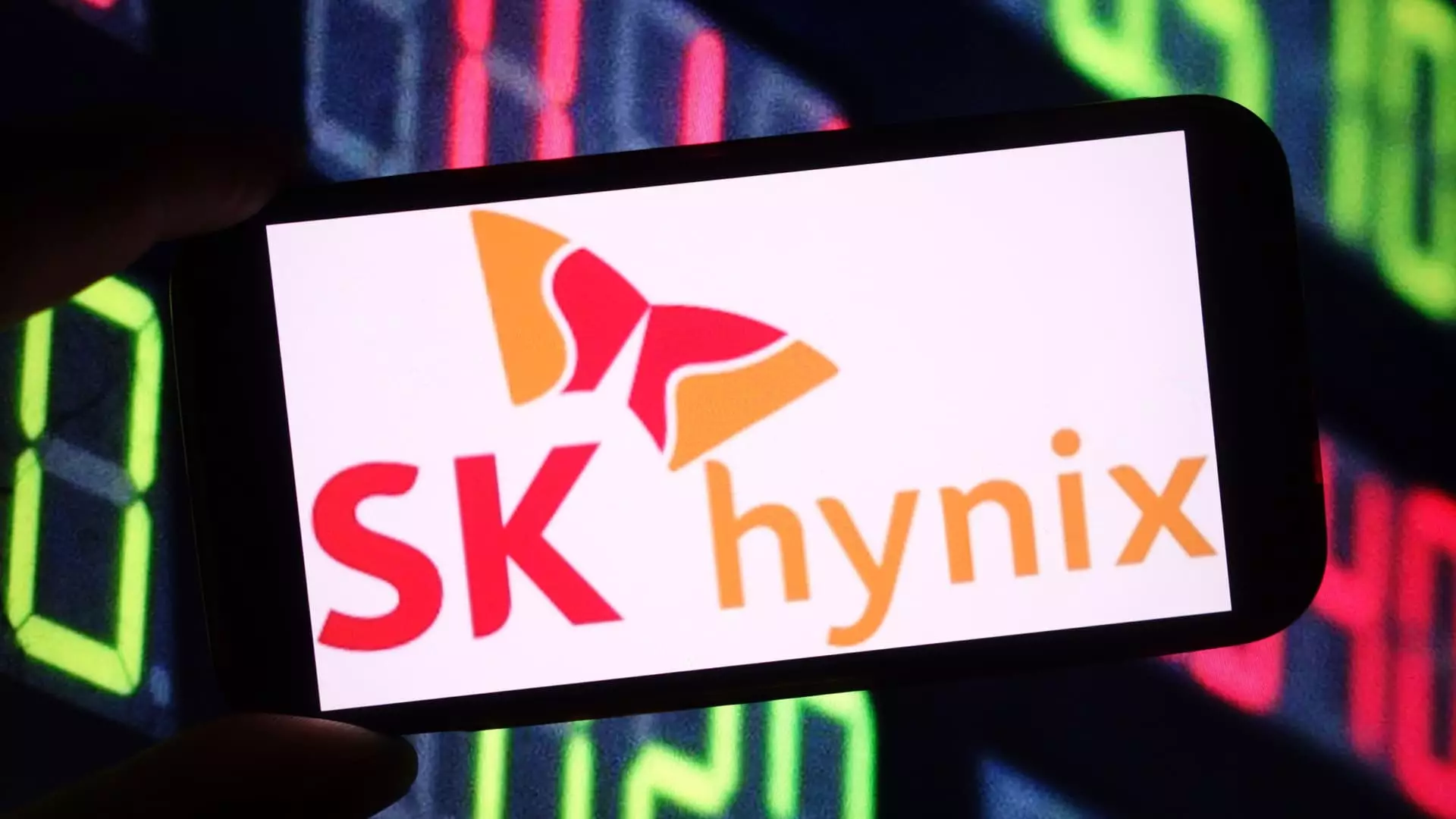SK Hynix, a titan in the semiconductor industry, recently astounded financial analysts and stakeholders alike with its exceptional quarterly earnings report. The company posted revenues of 17.64 trillion won (approximately $12.36 billion), outperforming estimates by a notable margin. This marked an impressive year-over-year growth of 42%, illustrating the robust demand for its high bandwidth memory (HBM) products, which are vital for powering artificial intelligence (AI) applications. Additionally, the operating profit skyrocketed to 7.44 trillion won, reflecting an astonishing 158% increase compared to the same period last year.
However, it’s crucial to delve deeper into these numbers. Despite the remarkable surge, there was a slight dip in revenue and operating profit when compared to the previous quarter’s record highs, signaling potential volatility in the chip market. In the face of these fluctuations, it’s clear that while SK Hynix has thrived, the semiconductor market remains fraught with uncertainty.
High Demand Amidst Global Uncertainty
The semiconductor industry, particularly the segment involved in AI capabilities, has witnessed an exhilarating boom. SK Hynix’s focus on high bandwidth memory—especially its dynamic random access memory (DRAM)—has set the company at the forefront of this technological wave. However, the company’s leadership has cautioned against potential pitfalls stemming from broader macroeconomic factors. With the specter of U.S. tariff policies looming, there are palpable fears that demand might wobble significantly in the latter half of the fiscal year.
This cautionary outlook highlights the intricate balancing act that semiconductor firms must perform. While there might be immediate gains driven by burgeoning demand, both geopolitical tensions and trade policies can rapidly shift the landscape. Market players like SK Hynix are acutely aware that sustaining growth requires not only adeptness in capturing current opportunities but also a robust strategy for navigating looming challenges.
The Rising Influence of Artificial Intelligence
The undeniable influence of AI on the memory market is underscored by SK Hynix’s latest results. The company’s executives publicly attributed their impressive profits to the transformational impact that AI is having on various sectors, especially in consumer electronics like PCs and smartphones. Tech giants are gearing up to launch innovative products that integrate AI features, which in turn drives the demand for high-performance memory solutions.
Moreover, the growth in AI investment from major technology enterprises is expected to persist. SK Hynix anticipates that the expansion of open-source AI model offerings—coupled with increased funding for “sovereign AI projects”—will further bolster memory demand. One notable example highlighted by the company is DeepSeek’s open-source R1 reasoning model, which achieved substantial efficiency despite its minimal hardware requirements. Such advancements create tangible catalysts for AI proliferation, reassuring investors of SK Hynix’s role as a critical supplier in this evolving ecosystem.
SHBM Market Dominance and Competitive Landscape
Emerging as a leader in the HBM market, SK Hynix has not only captured but also maintained a 70% revenue share, according to recent research by Counterpoint. This dominant position is particularly noteworthy when considering the competitive landscape, which includes formidable rivals like Micron Technology and Samsung Electronics. As the demand for AI-specific memory solutions escalates, SK Hynix’s ability to innovate and maintain high manufacturing standards will be pivotal for sustaining its lead.
The industry’s rapid evolution necessitates that companies remain agile in product development. SK Hynix’s emphasis on high bandwidth memory for AI applications places it in a unique position to benefit from this hyper-competitive market. As competitors scramble to increase their market share, SK Hynix’s established relationships with AI leaders such as Nvidia further solidify its stance as a critical player in shaping the future of AI technologies.
The Stock Market Reaction
Despite its impressive financial results, SK Hynix’s shares experienced a slight decline of 0.9% in the Asian trading markets following the announcement. This can be attributed to the market’s fixation on the potential impact of rising tariffs and trade tensions. Investors often approach this sector with caution, as any sign of instability can influence stock valuations significantly. The juxtaposition of stellar earnings with a downturn in stock performance underscores the complexities involved in semiconductor investments.
SK Hynix’s performance is a testament to the extraordinary potential that lies within the intersection of artificial intelligence and semiconductor technology. As the company navigates its triumphs along with the challenges imposed by economic uncertainties, its journey will undoubtedly be closely monitored by stakeholders keen on the tech sector’s evolution.

